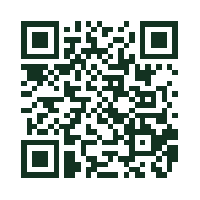Abstract
Responsible scholarship requires that students engage with their context and their own learning to understand and transform our world with wisdom. Ponti (J.J.) Venter argues that such a notion is central in understanding the task of a (Christian) university. In this article, dedicated to Professor Venter, I argue that the pedagogical implications of such a Christian understanding of science need to be developed further in a higher education context. I propose that care deepens wonder and sustains action by continuously calling our imagination to envisage longed-for change in both an academic and a broader social context. I offer five concrete suggestions to support lecturers in guiding students to act from their care for the world. These suggestions refer to the importance of inventory work, the cultivation of empathy, inspiring examples, emotional involvement, and an inner and outer dialogue as to the appropriate form their care should take. A Christian pedagogy should, secondly, support students in unfolding their own style of moving between theory and experience; thirdly, it should enable students to experience themselves as partners in academic discussions and as historical formative agents contributing to our world; fourthly, it should focus on a view of the world in which their tentacles are feeling for change, accompanied by normative sophistication. Fifthly, the development of a suitable pedagogy requires lecturers to develop peer groups organically to reflect on teaching practices that encourage students’ transformative engagement with our world.
Copyright information
- Ownership of copyright in terms of the Work remains with the authors.
- The authors retain the non-exclusive right to do anything they wish with the Work, provided attribution is given to the place and detail of original publication, as set out in the official citation of the Work published in the journal. The retained right specifically includes the right to post the Work on the authors’ or their institutions’ websites or institutional repositories.
Publication and user license
- The authors grant the title owner and the publisher an irrevocable license and first right and perpetual subsequent right to (a) publish, reproduce, distribute, display and store the Work in any form/medium, (b) to translate the Work into other languages, create adaptations, summaries or extracts of the Work or other derivative works based on the Work and exercise all of the rights set forth in (a) above in such translations, adaptations, summaries, extracts and derivative works, (c) to license others to do any or all of the above, and (d) to register the Digital Object Identifier (DOI) for the Definitive Work.
- The authors acknowledge and accept the user licence under which the Work will be published as set out in https://creativecommons.org/licenses/by/4.0/ (Creative Commons Attribution License South Africa)
- The undersigned warrant that they have the authority to license these publication rights and that no portion of the copyright to the Work has been assigned or licensed previously to any other party.
Disclaimer: The publisher, editors and title owner accept no responsibility for any statement made or opinion expressed by any other person in this Work. Consequently, they will not be liable for any loss or damage sustained by any reader as a result of his or her action upon any statement or opinion in this Work.
In cases where a manuscript is NOT accepted for publication by the editorial board, the portions of this agreement regarding the publishing licensing shall be null and void and the authors will be free to submit this manuscript to any other publication for first publication.
Our copyright policies are author-friendly and protect the rights of our authors and publishing partners.

